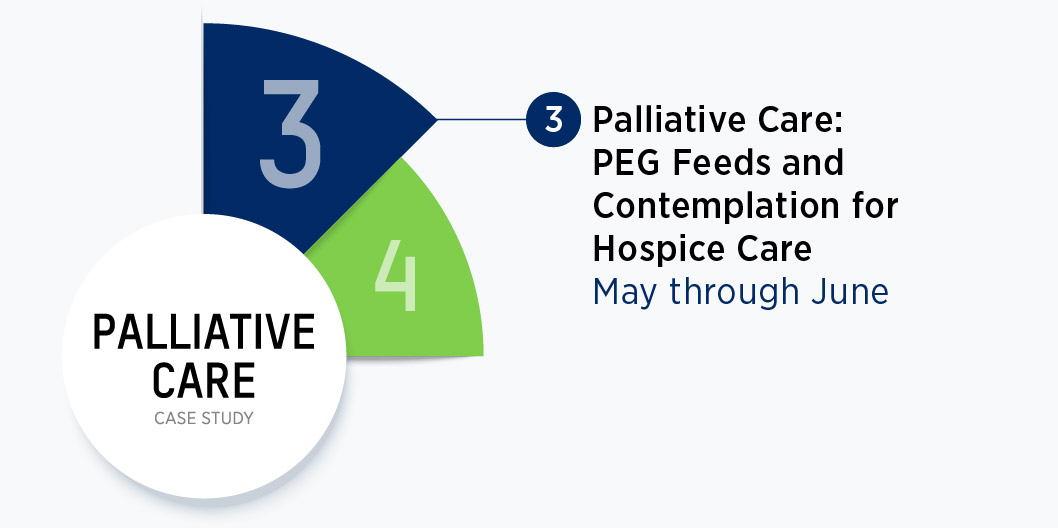
 |
||||||||||
|
|
|
|||||||||
 |
||||||||||
|
Case 16 addresses the Nutrition Care Process during palliative and hospice care. The four phases of Lillie's care reflect the first four of the five phases of palliative care described in Table 2: Classification of the phases of palliative care and the role of the dietitian in the Perspective. As you work through the information below, consider the dietitian's focus during Phase 3 of Lillie's progress. What are the key issues for consideration in terms of nutrition care? What questions will the patient and her caregiver be asking?
Late one night when Lillie woke to go to the bathroom, she had a fall and could not get up. Thankfully, she was able to call Evelyn to assist. Evelyn and her husband lifted Lillie and returned her to bed. From that point forward, Lillie felt weak and unsteady on her feet. Evelyn, feeling concerned for Lillie's welfare, contacted the town's hospice regarding options for her care. Lillie discussed with the hospice worker the two options available to her:
or 2) Remaining at home with additional support.
At this time, Lillie's physician had a difficult discussion with her regarding the need to acknowledge her body was no longer strong enough to tolerate treatment and that it was time to consider hospice care and PRN PEG feeding. The physician increased Lillie's pain medication (morphine) to cover her worsening pain. Lillie was tolerating a single x 250 mL can of 2 Cal enteral feed daily and while continuing to eat independently, she was managing only a few teaspoons of soft, pureed foods daily. Lillie's had lost interest in food and she was experiencing worsening nausea and abdominal discomfort. During your assessment you estimate that Lillie has lost 7 kg in body weight since you saw her in October last year. Lillie was reluctant to face these decisions. Hospital admission was not appealing to her. This was not how she wanted to spend her final days. Lillie made the decision to stay in her home for the remainder of her life. Lillie's only son lived 1 120 km (700 miles) away and felt he couldn't leave his job to spend time with his mother. He was also emotionally unable to deal with the deterioration in his mother's health. When Lillie's caregiver contacts him about coming to spend time with his mother, he said, "they have had their final conversations and there isn't anything that has been left unsaid." Lillie understands that he is too emotional to deal with her deterioration. However, she hoped he would change his mind and come to visit her. She decided not to ask him to come. She wanted it to be his decision.
Her son took a temporary leave of absence from his job to come and stay with her. He understood this might be his last opportunity to spend time with his mom.
The dietitian is required to assess Lillie's status and report to the Palliative Team with a nutrition plan for hospice care.
|
||||||||||
CLICK HERE TO ACCESS PHASE 3 ACTIVITIES.
CLICK BELOW TO NAVIGATE THE PHASES.
.png) |
 |
.png) |

